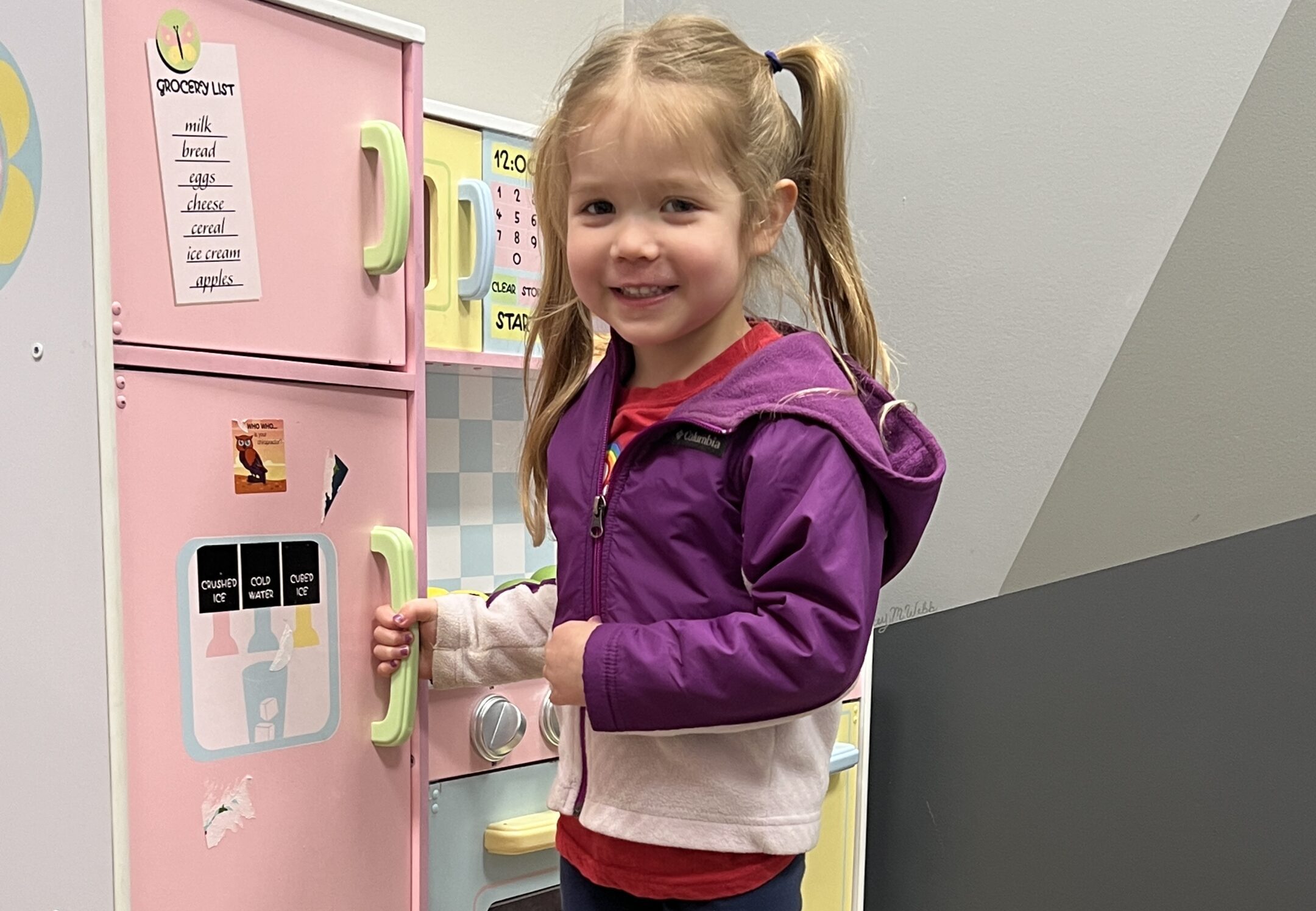In an all too common story, Bryce’s mom shared this with us, “Her immune system felt very weak from very early on. She seemed to pick up any and every cold/virus out there and experienced chronic ear infections. With every cold, she would experience a cough that lingered for 2-3 weeks. It felt like we were only getting one “healthy” week per month.”
Like so many children, Bryce struggled with many things that led to her consistently having a chronic cough. In addition to the chronic ear infections, she really struggled with sleep. Mom says she can “count on one hand” how many times she actually slept through the night those first few years, and she knew how much that weakened her body and contributed to her being sick all the time.
Chronic coughing is a condition that can have a serious negative impact on an individual’s quality of life and can be especially disruptive for children. But because a chronic cough may not be attached to other, more overt symptoms of colds or illnesses, it can be difficult to know how to provide the right care. Here, we explore common questions about chronic coughing, including chronic-cough symptoms, possible causes, and care options.
What Is a Chronic Cough?
A chronic cough is traditionally defined as a persistent cough that lasts four weeks or longer in children and eight weeks or longer in adults. Although coughing is an important natural defense mechanism that allows the body to expel microbes, mucus, and dangerous foreign particles from the respiratory tract, a recurrent (or “chronic”) cough can easily become problematic — interrupting sleep, impairing concentration, and contributing to poor mental health.
One important thing to recognize about a chronic cough is that it is not a disease in and of itself; it’s an issue that may be symptomatic of other diseases or health conditions. As such, trying to combat the cough with over-the-counter suppressants and other medications and remedies is generally not enough to address the underlying condition, which may persist until more-direct action is taken.
What Are the Symptoms of a Chronic Cough?
As mentioned above, a chronic cough almost always indicates some other health issue. As such, the cough itself is a symptom. But in addition to ongoing coughing, a chronic cough may also be associated with other symptoms. Being aware of these other symptoms can help you and your care providers more accurately identify the primary problem triggering the cough.
Common signs and symptoms that occur alongside a chronic cough include the following:
- Appetite loss
- Chest pain
- Coughing up blood (in rare cases)
- Coughing up mucus or phlegm
- Dizziness
- Excessive sweating
- Fatigue
- Frequent throat clearing and sore throat
- Headaches
- Heartburn or a sour taste in the mouth
- Hoarseness or difficulty speaking
- Night sweats
- Postnasal drip
- Runny or stuffy nose
- Shortness of breath or difficulty catching breath
- Swollen face or hives
- Temperature higher than 101°F
- Unexplained weight loss
- Vomiting
- Wheezing
What Can Cause a Chronic Cough?
Many internal and external influences can contribute to a chronic cough. In most cases, the main causes of chronic-cough symptoms may be traced to other conditions or even environmental factors — or a combination of each.
The following are some common causes of chronic coughing:
- Asthma + Allergies
A chronic cough is one of the most common symptoms of asthma. Asthma sufferers often experience a tightening of the muscles around their airways accompanied by the increased production of mucus. The body initiates coughing as a way to attempt to force air through these restricted areas and expel the mucus. Additionally, chronic allergies can leave the child’s system in a more sustained state of inflammation, congestion, and tension, triggering the body to cough to try and loosen up the continual congestion and tension. - Covid-19
A chronic cough may be a lasting symptom following a Covid-19 infection. Although the long-term effects of this new virus are not yet fully understood, some recovered patients report persistent coughing and shortness of breath long after their other symptoms have passed. Many researchers believe this is tied to a disorder or dysfunction of the Vagus Nerve. - External Factors
Mold spores, cigarette smoke, excessive dust, pollutants, and allergens can all contribute to a chronic cough. This can be especially problematic when at-home air quality is poor. The mold can often be trapped in the laundry area, leaving the mold spores on the child’s clothes daily and initiating the chronic cough. - Gastroesophageal Reflux Disease (GERD)
GERD is a form of acid reflux that can occur several times a week where digestive acid flows from the stomach and into the esophagus, causing irritation and possible scarring. This can create the sensation of a ‘tickle’ in the throat, resulting in a near-constant urge to cough. Since most medical treatments never address the root cause of infantile reflux, many doctors think it may persist later in life as a chronic cough and other health challenges. - Neuromuscular Dysfunction + Interference
Imbalances in the neurospinal system can lead to various disorders, particularly in children. A chronic cough may indicate significant tension and neurological interference, such as can occur in subluxation, dysautonomia, and vagus nerve disorders. This issue may even be part of the ‘perfect storm’ of chronic health challenges — which you can learn more about here.
Overall, it’s pretty easy to see how subluxation in a child can contribute to the chronic cough and the other related conditions mentioned here. Chronic subluxation leaves the body in a prolonged state of sympathetic tone, causing muscles (including those of the airway) to remain tight and constricted. Additionally, when the nervous system is stuck in that sympathetic state, it leads to a pro-inflammatory environment which could also contribute to all of these challenges.
What Are Care Options for a Chronic Cough?
Most parents are already quite familiar with the standard medical options for chronic cough in a child. They are likely not huge fans of them since they all involve medications that involve both short- and long-term side effects. Likely, your pediatrician has already tried an assortment of acid blockers, antibiotics, antihistamines, decongestants, and cough suppressants.
We are all aware that these medications can be life-saving and quite incredible for short-term infections and inflammatory challenges, but often can prolong or worsen a chronic condition. This is because they do not address the root cause of the chronic cough and can manipulate and weaken the body’s own natural defenses to tension and inflammation.
That is why so many parents are turning to drug-free options like Pediatric Chiropractic Care, which addresses the root cause of chronic cough. The first thing that needs to be done to find out if chiropractic care can help your child is a consultation and then a neurological examination, where your Pediatric Chiropractic can detect the presence of subluxation and neuromuscular tension.
So often, it’s found that things like birth trauma, reflux, and even constipation have not been fully taken care of yet, and as the child grows, the subluxation and chronic tension contribute to other conditions like a chronic cough.
A trained and experienced Pediatric Chiropractor like those in the PX Docs Network will know to look most closely at the upper cervical and upper thoracic regions since those are most closely related to the function of the Vagus Nerve, Phrenic Nerve, and the neuromuscular dynamics of the respiratory system.
Final Thoughts
If you’re the parent of a child suffering from a chronic cough, it can be hard to know how to help your little one. Understanding causes and possible care options is an important first step, but finding an effective solution takes more than just research. PX Docs — an extensive network of more than 500 pediatric chiropractic doctors and experts — is here to help you and your child find relief.
Countless children have experienced the same benefit with Pediatric Chiropractic care that Bryce did, the little girl whose story kicked off this article. Bryce is now sleeping through the night and waking up refreshed and recharged. And when she does get sick, the symptoms are less severe and shorter-lived. Mom says, “We can finally see and experience our very best girl!”
Don’t let a chronic cough decrease the quality of life in your home. Set up an appointment with a PX Docs pediatric chiropractor today, and kick coughing to the curb!






